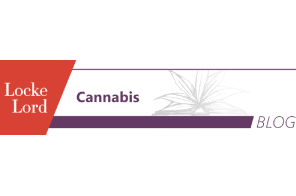
Delta-8 THC is the latest trend permeating through the cannabis industry. The National Cancer Institute’s definition of Delta-8 THC indicates that it is “an analogue of THC” that contains neuroprotective properties that can increase appetite and reduce nausea, anxiety and pain. It produces some psychotropic effects but has “a lower psychothropic potency” than Delta-9 THC. In other words, it is a cannabinoid that can produce the “high” traditionally associated with Delta-9 THC, but not as much of it. The interesting thing about Delta-8 THC is that it can be produced from hemp as defined under the 2018 Farm Bill, which unlike marijuana, is federally legal. This would seem to make Delta-8 THC (and the products containing it) legal and freely enjoyable across the United States, but it is not quite that simple.
The legal complexities derive from the way Delta-8 THC can be engineered in a lab and the DEA’s interim final rule on the implementation of the Farm Bill that was released in August 2020. The Farm Bill itself makes no mention of Delta-8 THC as lawmakers were solely focused on Delta-9 THC at the time it passed, but the interim final rule states the Farm Bill “does not impact the control status of synthetically derived tetrahydrocannabinols (for Controlled Substance Code Number 7370) because the statutory definition of ‘hemp’ is limited to materials that are derived from the plant Cannabis sativa L. For synthetically derived tetrahydrocannabinols, the concentration of Delta 9-THC is not a determining factor in whether the material is a controlled substance. All synthetically derived tetrahydrocannabinols remain schedule I controlled substances.” (Emphasis added). The DEA has not issued a final rule yet, but it is expected the final rule will take the same stance.
Although Delta-8 THC is a naturally occurring cannabinoid, the concentrations of this cannabinoid naturally occurring in cannabis plants is small. Extracting natural Delta-8 THC and making products out of it becomes economically difficult. However, there is a process that can convert CBD (which is naturally contained in much higher levels in cannabis plants) into Delta-8 THC and companies are getting more and more efficient at this process. The federal legality of Delta-8 THC thus depends on whether the process of converting other cannabinoids (like CBD) into Delta-8 THC makes the resulting product “synthetic.” This would seem to be an easy answer to figure out, but neither the Farm Bill nor the Controlled Substances Act define what it means for something to be “synthetic.” Reasonable minds could certainly argue that a cannabinoid that is naturally occurring is nonetheless synthetic when it is converted in a lab. However, it is just as reasonable to take the position that synthetic drugs are those developed from nonorganic sources. In fact, the National Institute on Drug Abuse published a document on justice.gov that states “[s]ynthetic cannabinoids refer to a growing number of man-made mind-altering chemicals that are either sprayed on dried, shredded plant material so they can be smoked (herbal incense) or sold as liquids to be vaporized and inhaled in e-cigarettes and other devices (liquid incense).” That definition would not encompass Delta-8 THC converted from CBD.
It is thus safe to say that Delta-8 THC is currently in a legal grey area. There are risks to companies that are currently manufacturing and selling Delta-8 THC products, but there is also not a clear path to prosecution for the DEA either. Against this backdrop, it is critical for companies to consult with a legal team before deciding whether to jump into Delta-8 THC production or expanding Delta-8 THC products into a new state. If you are considering getting into the Delta-8 THC space be sure to follow our blog to stay up to date on this issue and everything else concerning the cannabis industry.
Source: https://cannabis.lockelord.com/2021/05/26/explaining-why-delta-8-thc-is-in-a-legal-grey-area/
